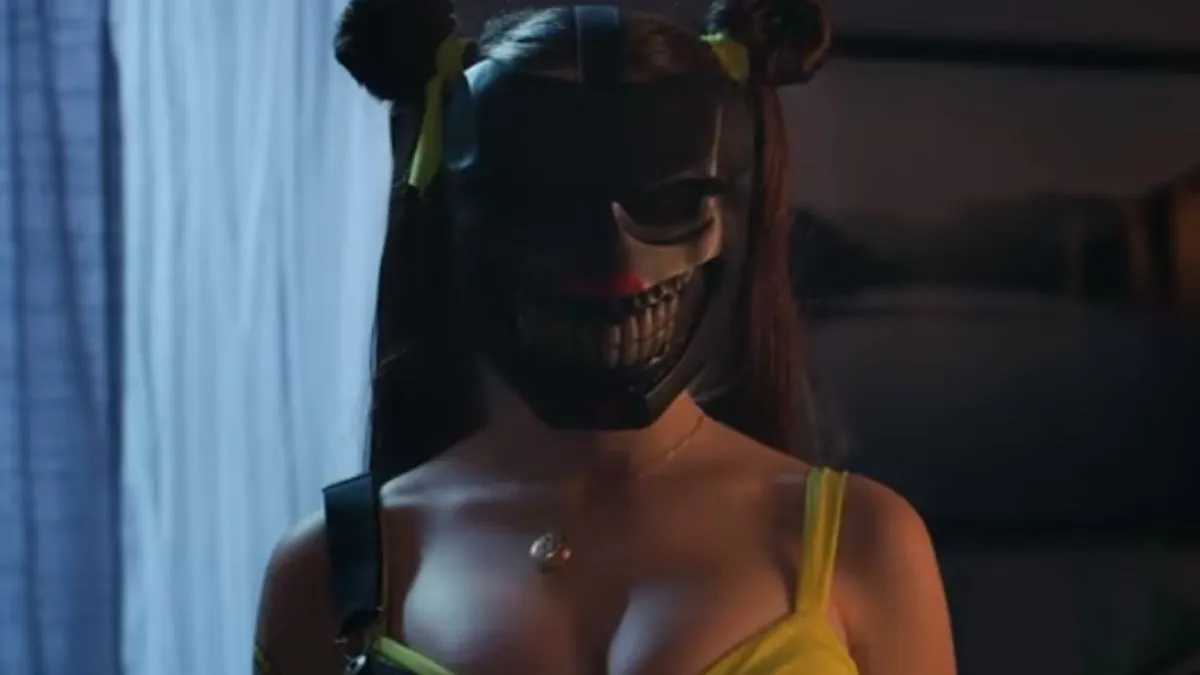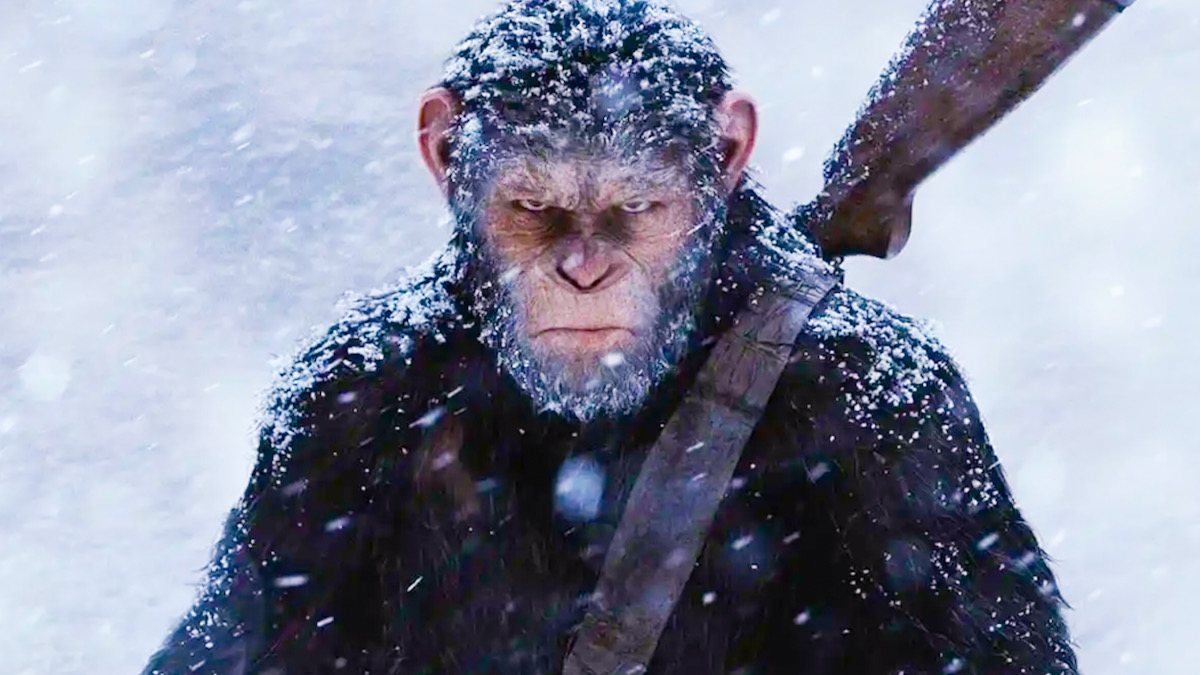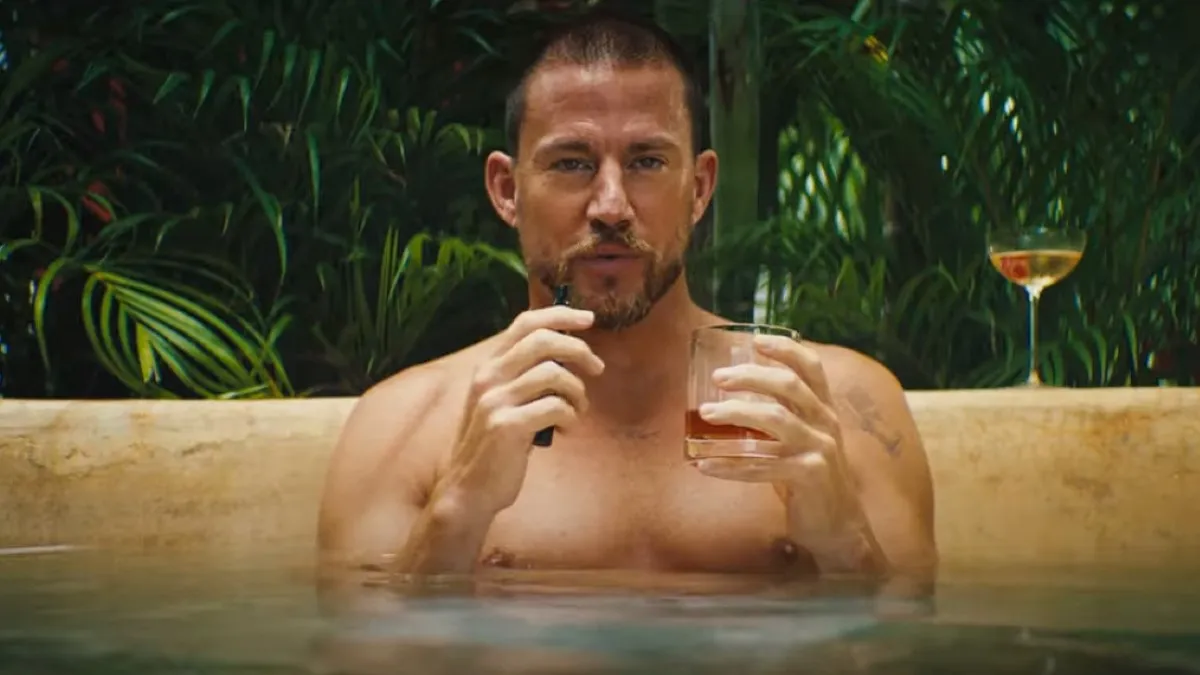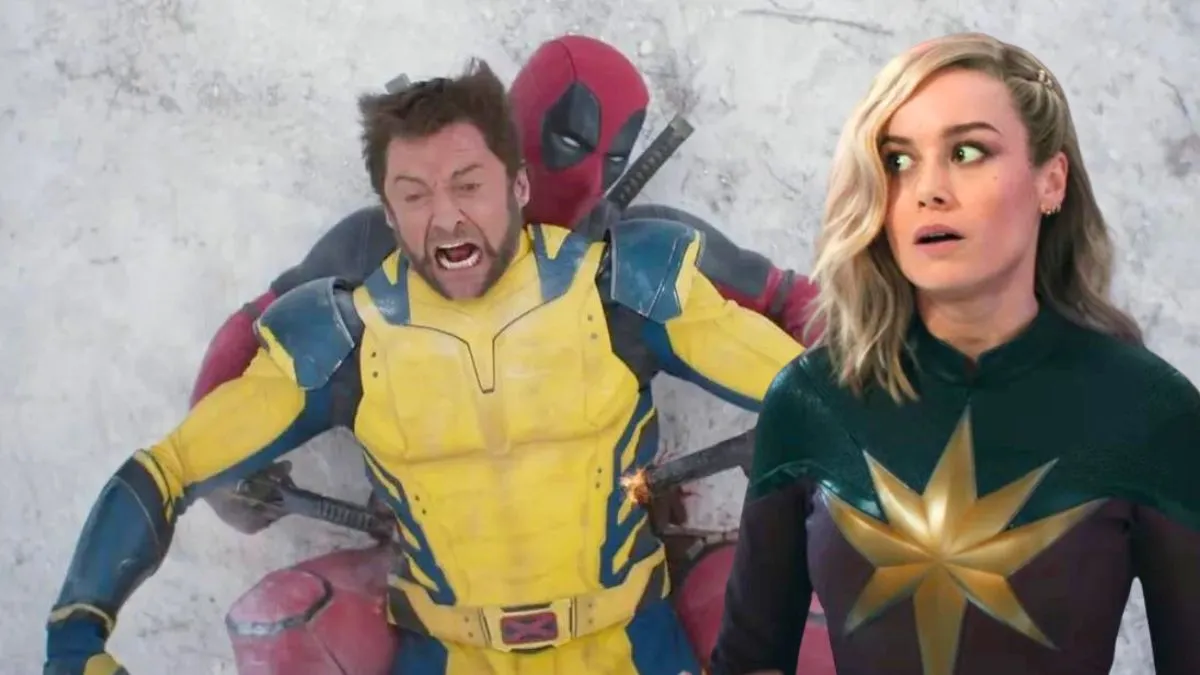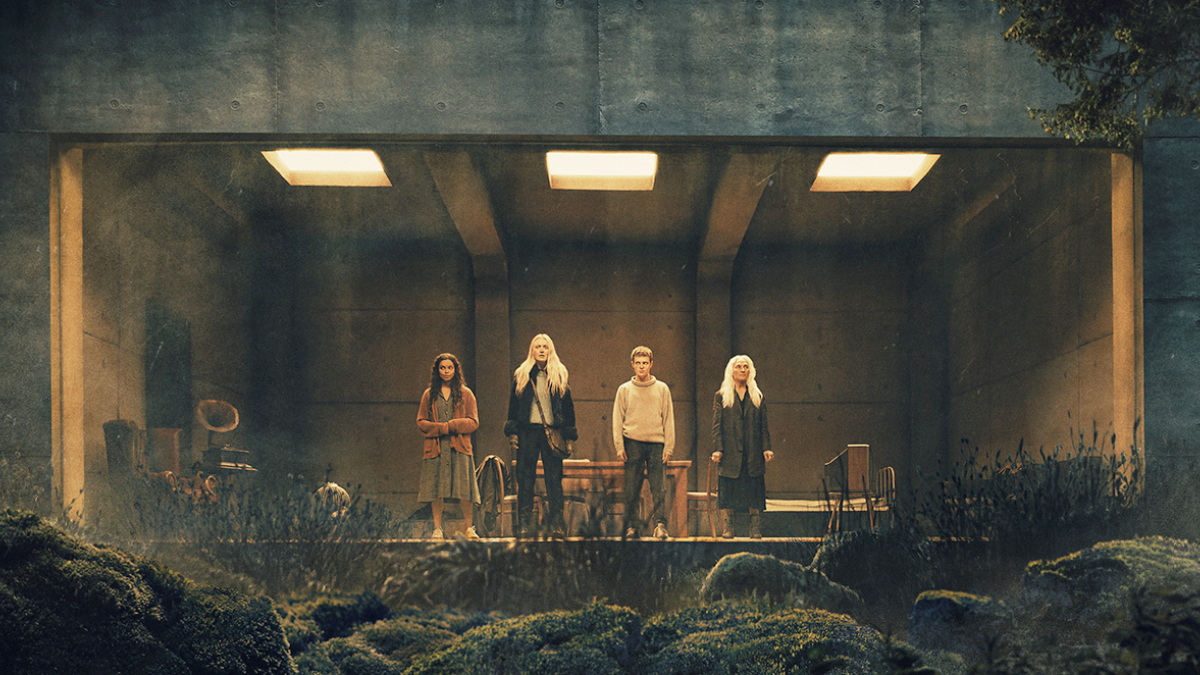As you may have already heard, I believe Django Unchained is the best film of 2012.
It is also, arguably, the finest film of Quentin Tarantino’s career, and I say that as someone who holds the man in ridiculously high regard as my favorite American filmmaker. Be it his utterly singular dialogue, vibrant characterization, or the best traditional cinematography of anyone working today, I simply find Tarantino’s work more creatively stimulating than any other modern director. Most important, though, is the incredible sense of energy, enthusiasm, and excitement with which Tarantino imbues his films. No matter how many sorts of genres, themes, characters, or periods the man tackles, every Tarantino film is filled to burst with sheer, unbridled cinematic joy, endless flourishes of creativity, imagination, and relentless passion for the art of filmmaking.
In 2009’s Inglourious Basterds, Quentin Tarantino seemed to take his craft to the next level by channeling that passion towards one of the most complex and provocative topics imaginable, using the cinematic medium to not only create a stirring revenge fantasy, but to discuss and dissect filmmaking as a method for eternalizing and reevaluating thoughts, emotions, and historical injustices. The film worked beautifully, a bigger, bolder, and all-around better work for a director who already had several masterpieces under his belt.
For Django Unchained, Tarantino has pushed even further in that direction, playing an ambitious and provocative game wherein he crafts both the ultimate Western and the ultimate critique of the culture behind the Western. Over the course of two-and-a-half riveting and explosive hours, Tarantino subverts, explores, and ultimately rewrites the iconography that fuels the genre, using film as a method to account for the horrors of the past and the past as a method to account for gaps in cinematic representations of history. The result is a spectacularly powerful film, one more stylish, profound, and wildly, unequivocally satisfying than anything in Tarantino’s filmography, or, indeed, anything else released in 2012.
On a narrative level, Django Unchained is Tarantino’s most straightforward story since Jackie Brown, told in sequence, without chapters or other dividers, and focusing at all times on its two main characters. Django (Jamie Foxx), a slave, is freed in the film’s opening moments by Dr. King Shultz (Christoph Waltz), a bounty hunter who needs Django’s assistance in tracking down the treacherous Brittle Brothers, a trio of murderous slave traders whose visual identities are known only to Django. In return for Django’s help, Shultz offers him freedom, as well as assistance in finding and rescuing Django’s wife, Broomhilda (Kerry Washington), previously sold to the wealthy and terrifying plantation owner Calvin Candie (Leonardo DiCaprio).
While there are certainly unexpected turns and plenty of surprises, that’s the story in a nutshell, and while I love the narrative ambition of Pulp Fiction, Kill Bill, and Inglourious Basterds, it is absolutely refreshing to see Tarantino take a step back and simplify his storytelling. It allows for even greater emphasis on dynamic characterization and evolving relationships – always one of Tarantino’s greatest strengths – but also gives the director license to play with structure on subtle but suggestive levels.
In a sense, Django Unchained is built like an hourglass, wherein the first and third acts offer the Western – with heavy Spaghetti Western and exploitation influences, of course – at its most stylish and exciting, while the middle portion dives deep into the heart of the cultural history behind our collective national mythology. In essence, the genre – and, more importantly, the historical elements that lie underneath – is established, broken down and analyzed, and rebuilt as a more whole and satisfying reflection of itself, and I find it amazing just how much Tarantino accomplishes, on an awe-inspiring number of levels, over the course of the journey.
For while Django Unchained offers big laughs and visceral pleasures aplenty, the heart of this film is deadly serious, and Tarantino pulls no punches in translating his message to the viewer. He is interested, I think, in the way we often try to wish away or ignore the dark and unsavory elements that exist within the core of not only our history, but in the mythologies and symbols born out of this time period – and, by extension, the ways in which our collective repression is reflected in modern culture.
The mere concept of slavery corrupts and denigrates everything it touches, and in crafting the Western legacy, we have essentially left thousands of people behind, the people on whose backs many key pieces of American iconography were forged. Django Unchained is designed so that we cannot ignore the moral waste that touches historical mythmaking, and over the course of the film, the main character, a victim of slavery and abuse, gets to reclaim Western iconography for his own, and reorient our modern views on the subject at the same time.
With this in mind, Django Unchained contains more stretches that exist without affectation or stylistic playfulness than any Tarantino film since Jackie Brown. Not only are there moments of pure and poignant emotion – either between Django and Shultz, whose friendship defines the picture, or star-crossed lovers Django and Broomhilda – but also sequences of pitch black darkness and violence, where the disturbing elements are in no way mingled with humor or entertainment. This can be a bleak and dirty and harrowing film at times, especially during the second act, where Django and Shultz find themselves on Candie’s plantation, immersed in a brutal world of cruelty and exploitation. Unlike Hans Landa, the antagonist of Inglourious Basterds, Calvin Candie is rarely a character we are made to laugh at, nor is he endearing on any level. He is a repulsive man who says and does repulsive things, and through him, we dive deeper and deeper into one of the most blunt and uncompromising depictions of slavery ever committed to film.
The starkness makes us question our unbridled enjoyment of the first act, which acknowledges slavery without necessarily focusing on it, and sets us up for the astonishing excitement of the third act, wherein Django finally takes up arms and steps into his role as icon. The film builds to this explosively stylized finale so well, with such clear emotions and thematic exploration throughout, that the last half hour must surely stand as one of the most satisfying third acts in recent movie history. This big, bombastic, cathartic dose of carnage is even more substantial than Tarantino killing Hitler in Inglourious Basterds; that film offered an applause-worthy adjustment of history, but there is something even more stirring about the sight of Django, an enslaved African-American character, seizing Western iconography for his own, and doing it as well, if not better, than any white hero in cinema history.
It is about damn time, I must say, especially when the hero in question is played by an actor as confident and commanding as Jamie Foxx. Tarantino may be the creative force intent on turning this protagonist into a modern screen legend – Django gets his own well-deserved theme song at multiple junctures – but it is Foxx who makes the dream a reality, playing the part with the same precise, spellbinding spirit as many Western heroes of old. It is both a terrific ‘man-with-no-name’ performance and something deeper, something more thoughtful and rousing and, when the time comes, unbelievably badass. It is entirely possible that Foxx brings more to this part than was ever asked of him, but that is what makes this performance and character so special – he has been realized, on all fronts, with true passion and inspiration, and no matter the era or genre, that is a very special quality for any protagonist to possess.
It is a major credit to Foxx that I think of him first when he splits so much screen-time with the incomparable Christoph Waltz, a marvelous actor who seems to understand Tarantino’s rhythms and style as well as any other collaborator. As he did in Inglourious Basterds, Waltz simply revels in this dialogue, attacking it with infectious joy and enthusiasm. I find him even more compelling playing a ‘good guy,’ for he is an inherently likable actor, and Dr. Shultz’s character arc is as touching and compelling as anything Tarantino has ever written.
Leonardo DiCaprio is, as expected, a perfect fit for the material as Calvin Candie; he too is on Tarantino’s wavelength when it comes to delivery and presentation, and is unafraid to perform the darkest and most off-putting character beats of his career. Candie is a despicable bastard, but also a complex one, and DiCaprio is fantastic at illustrating every nuance of a thoroughly unpleasant villain.
The list of great supporting performances goes on and on – Kerry Washington is splendid even with relatively limited screen time as Django’s wife Broomhilda – but one of the key highlights is Samuel L. Jackson as Stephen, a ‘house slave’ at Candie’s plantation with surprising and challenging loyalties. I am not sure if Jackson has ever been quite this good, and it’s not just the physical or vocal commitment that impresses me; Stephen is a tough character to understand or sympathize with, but Jackson’s work is so vivid and illustrative that I am fascinated by the part nevertheless.
As technical credits go, Django Unchained is as accomplished as anything else in Tarantino’s filmography, if not more so. Robert Richardson’s cinematography is lush, clear, and evocative – maybe the best of 2012 behind Roger Deakins’ work on Skyfall – while Tarantino’s eclectic musical choices perfectly complement and enhance the action and imagery. The big question mark going into the film was the editing, for this is Tarantino’s first feature without longtime collaborator Sally Menke. One of the best editors in the industry, she passed away in 2010, and Tarantino has gone for continuity here by working with Fred Raskin, who served as assistant editor on Tarantino’s previous films. Raskin does Menke proud; there is a bit more montage editing this time around, and a few quicker cuts during conversations, but this is largely in line with Menke’s seamlessly effective work, and plays a major part in realizing Tarantino’s stylized vision.
There has simply been no film this year that awakened, excited, and satisfied my cinematic senses as much as Django Unchained, no film that succeeded better at its own ambitions or, with one or two possible exceptions, set it sights quite so high. This is not just the best film of 2012, but a true American classic, and a definitive sign that Tarantino is a filmmaker for the history books, as relevant and important today as at any other point in his career. Django Unchained is a masterpiece.
[springboard type=”video” id=”574873″ player=”wgtc007″ width=”600″ height=”350″ ]




